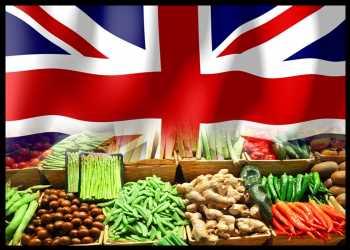UK Inflation Exceeds Expectations
UK consumer prices increased more than expected in March to remain stubbornly high on rising food prices and strengthened the call for a quarter point interest rate hike at the next Bank of England policy meeting in May.
Consumer prices logged an annual increase of 10.1 percent, which was slower than the 10.4 percent in February, the Office for National Statistics reported Wednesday.
However, headline inflation was expected to slow to 9.8 percent.
Month-on-month, the consumer price index gained 0.8 percent. Although the rate was slower than the 1.1 percent increase in February, this was well above economists’ forecast of 0.5 percent.
At the same time, core inflation that excludes energy, food, alcoholic beverages and tobacco, held steady at 6.2 percent in March.
There were strong upward contributions from food and non-alcoholic beverages and recreation and culture prices. Nonetheless, the slowdown in inflation mainly reflected changes in transport costs and housing and household services prices.
Another report from the ONS showed that output prices logged an increase of 8.7 percent annually, which was slower than the 11.9 percent rise in February. Economists had forecast prices to climb 8.6 percent.
On a monthly basis, output prices edged up 0.1 percent, following a 0.4 percent decrease in the previous month. The 0.1 percent increase was in contrast to economists’ forecast for a 0.1 percent fall.
The monthly factory gate inflation during the same period last year was 3.1 percent due to higher petrol prices following the conflict in Ukraine.
Input price inflation eased sharply to 7.6 percent in March from 12.8 percent in February. This was slightly above economists’ forecast of 7.0 percent.
Compared to the previous month, input prices unexpectedly grew 0.2 percent, following no movement in February. Prices were expected to ease 0.3 percent.
In the light of inflation and wage data, it is probably more likely that the Bank of England will hike the interest rate in May, ING economist James Smith said.
“Markets are pricing three more rate hikes over the next four meetings, which seems extreme,” the economist added.
The next monetary policy announcement from the BoE is due on May 11.
The central bank has thus far raised the bank rate by 415 basis points over the current tightening cycle that began in December 2021.
Source: Read Full Article

